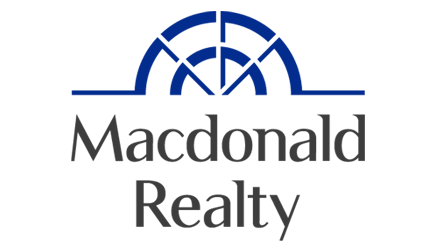
Requesting a loan for commercial real estate may feel intimidating. In many cases, the success of your purchase heavily depends on the bank’s response, either a positive or negative one. Nevertheless, there are several crucial actions you can take to greatly enhance your likelihood of approval.
According to Jean-Sebastien Vincent, the Director of Corporate Financing at BDC, it is essential to empathize with your banker. Consider what factors will make them feel comfortable in granting you the loan. Marc Noel-Corriveau, another Corporate Financing director, shares this sentiment and adds that many businesses fail to make a positive impression on the bank due to their lack of preparation prior to the meeting.
Vincent and Noel-Corriveau have outlined seven essential steps that can greatly increase your chances of obtaining a loan for commercial real estate.
Step 1. Demonstrate financial success
Begin by ensuring that your company’s financial situation is well-managed. According to Vincent, “The key factor in obtaining financing is having a company that is both profitable and expanding. A business without profitability faces slim prospects. Banks prefer to witness a consistent history of profits.”
Thoroughly analyze your requirements for real estate. Financial institutions do not view financing applications favorably if they are for hastily conceived projects. They expect to witness a well-planned approach with substantial evidence.
Determine your financial plan, preferred areas, and the amount of space you require. Decide whether you prefer purchasing or renting, and consider how you will manage potential growth. According to Noel-Corriveau, many businesses fail to engage in adequate planning before investing in real estate. For instance, they often acquire a location that fulfills their present needs without considering future expansion possibilities.
When creating a budget, it is crucial to take into account more than just the initial cost of purchasing or leasing a property. Many businesses tend to neglect or underestimate additional expenses that come with the property. These may include costs for conducting thorough research, making renovations, experiencing downtime during the transition period, paying legal fees, covering recurring operational expenses related to the property, and in the case of leasing, miscellaneous expenses and improvements to the leased space.
Make sure to create a well-planned budget for your commercial real estate purchase or lease.
Step 2. Choosing a Desired Property
Financial institutions determine the amount they can lend not only by evaluating your financial situation, but also by considering factors such as the type of property, its condition, age, and potential for resale. Without a particular property in mind, it becomes challenging for a bank to provide an accurate estimate of the financing they can offer.
If it appears that you are not a committed buyer and are simply wasting the banker’s time, you may also create a negative impression.
In case you haven’t decided on a specific property, it is possible for a bank to arrange an initial meeting with you to estimate the potential amount of financing they could offer. Nevertheless, it is recommended to consider such a meeting only if you already have a well-established rapport with the banker.
Step 3: Organize your paperwork
After identifying a potential property, it is crucial to gather the necessary documents to present to the bank. These documents should consist of recent financial statements, a well-developed business plan, and comprehensive information regarding the property you have set your sights on. Additionally, banks appreciate seeing proof of a capable and knowledgeable management team.
Vincent compares it to preparing for a job interview, emphasizing the importance of creating a positive initial impact, arriving punctually, and being thoroughly ready.
Step 4: Talk to the bank ahead of time
The bank will also provide guidance regarding its requirements for approving funding. These may involve acquiring evaluations on environmental impact and building conditions, conducting an appraisal, and conducting a title search. It is advisable to engage authorized professionals for these due diligence procedures, and each bank has its own roster of approved experts. In case you opt for a different professional, the bank may insist on obtaining a second opinion, which might cause a delay in the transaction.
Make sure to allocate an adequate amount of time in your purchase offer for the bank to assess the transaction. While it is typical for offers to grant a 30-day period, banks usually require six weeks or even more, especially if any due diligence matters arise.
Vincent highlights that businesses often fail to allocate sufficient time for the bank’s due diligence process.
Step 5. Explore loan conditions, not only interest rates
When engaging in conversations with banks, it is crucial to consider not just the interest rates they offer, but also the terms and conditions associated with the loan.
The loan-to-value ratio is a crucial factor when it comes to financing commercial real estate. Banks typically provide financing for 75% to 100% of the property’s value, depending on factors such as the condition of the building and its resale potential. If there is any shortfall, it usually needs to be covered by the company’s working capital or the entrepreneur’s personal funds.
Having a higher ratio means that more money will stay within your company in the short term, allowing you to invest in growth or handle cash flow shortages. Another important factor is the amortization period, which usually ranges from 15 to 25 years for commercial real estate term loans. Opting for a longer period can help you retain more money at present.
Additionally, it is essential to consider the bank’s flexibility in offering loan repayment holidays. For instance, you might be able to negotiate a temporary pause in capital repayments for one or two years after the transaction, enabling you to manage the costs and disruptions associated with moving. Moreover, flexible terms can allow you to postpone repayments if you face financial difficulties later on and need some time to recover.
In certain cases, banks may even include renovation costs in the term loan if they enhance the value of the property. It is highly recommended to thoroughly explore all financing options offered by your bank as they may present unexpected opportunities for your business.


